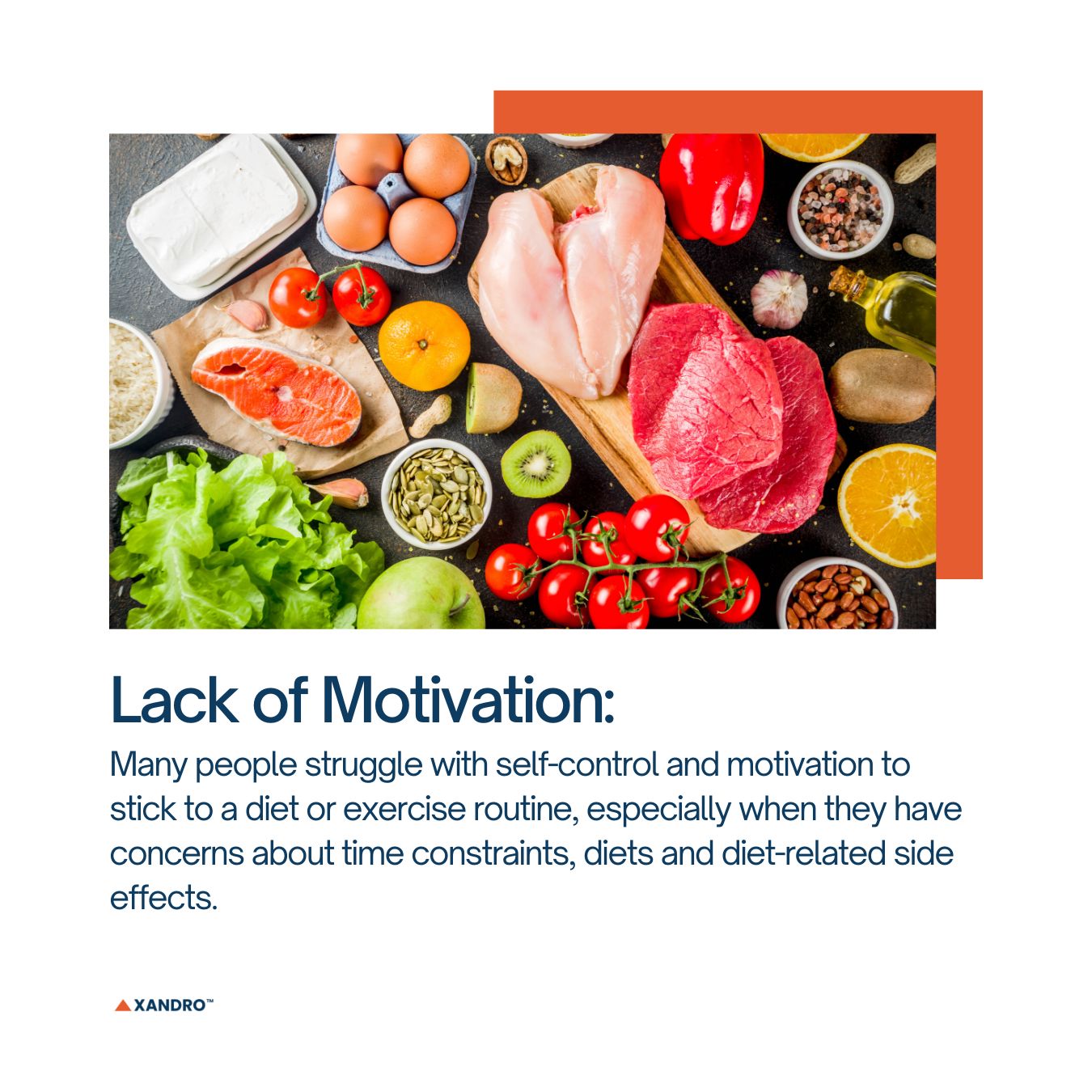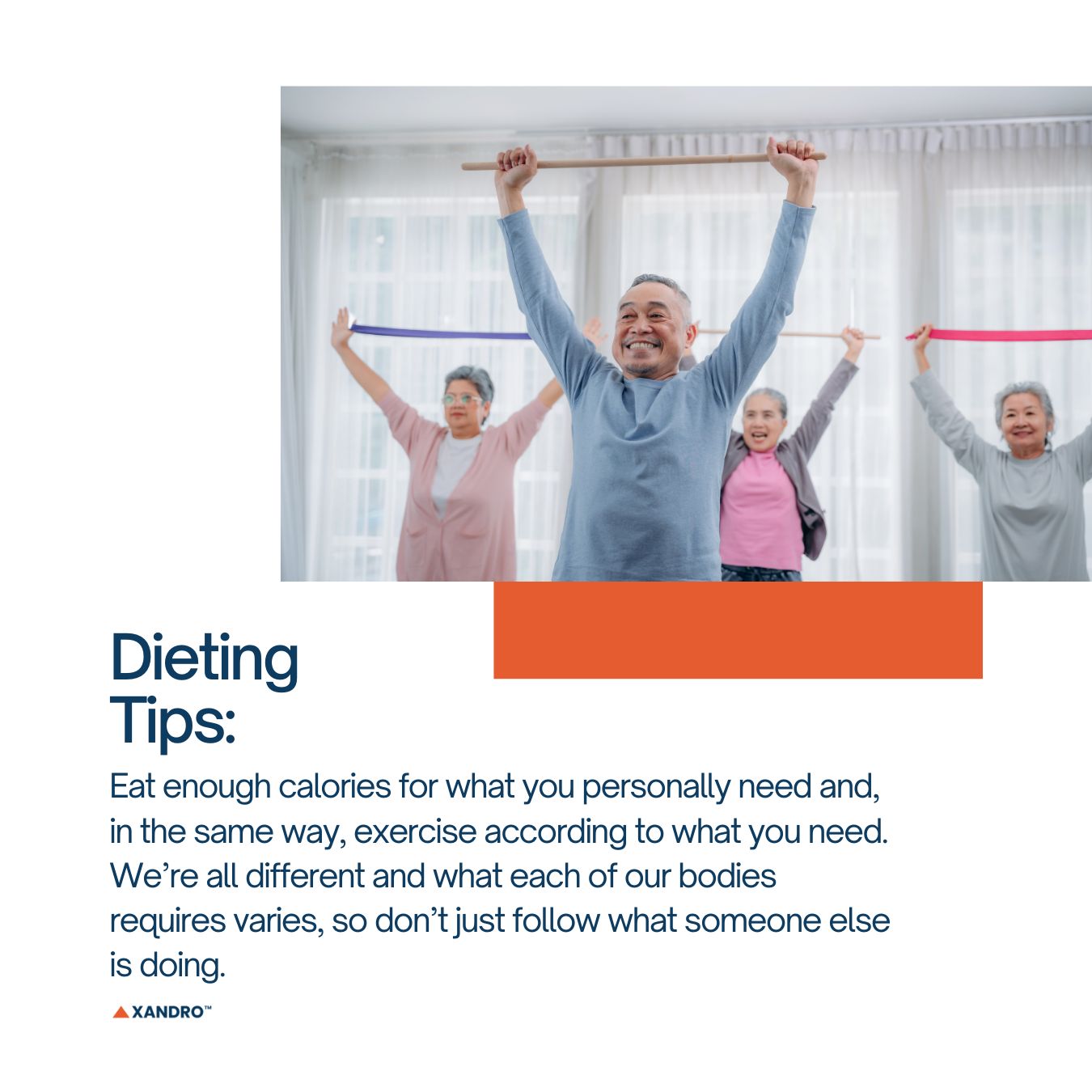Top Problems with Weight Loss & Solutions for Success
13th Oct 2024
Why Most Weight Loss Programs Fail & How to Succeed Long-Term
A question commonly asked is, ‘How to lose weight fast naturally and permanently,’ which often leads people down rabbit holes of fat diets and quick fixes, which can actually do your body more harm than good.
For the most effective long-term weight loss, you need to tailor your regime to your specific needs and interests. If you don’t like a particular fad food, you don’t need to incorporate it into your diet. If you hate running, don’t add it to your exercise plan.
If your goal is successful long-term weight loss, you need to be doing the right things but also enjoying yourself while doing it. That way, you won’t tire of your regime and fall back into bad habits.
This article is filled with weight loss research articles to help you further your research but focuses on the problems with weight loss approaches. Jump there now:
- What Is the Biggest Barrier to Weight Loss?
- Why Do Weight Loss Plans Fail?
- What Is the Biggest Mistake People Make When Trying to Lose Weight?
- Maintaining Weight Loss for A Lifetime
- End Note
Losing weight and keeping it off is a challenge for many, primarily due to our environment and how our bodies react to weight loss. There are a bunch of reasons for this, including:
- Easy Access to Junk Food: Over the years, cheap and highly processed foods have flooded the market, making it easy to consume unhealthy options. These foods are often more calorie-dense and less nutritious than fresh fruits, vegetables and lean proteins.
- Less Home Cooking: With busy lifestyles, fewer people are preparing meals at home. Instead, many turn to takeout or fast food, which often contains high levels of sugar and fat.
- Less Physical Activity: Many jobs are now sedentary and urban designs encourage driving rather than walking. This shift makes it harder to stay active throughout the day.
- Flawed Weight Loss Guidelines: Traditional advice suggested that cutting a few hundred calories a day would lead to consistent weight loss, however, this approach may not consider how our bodies adapt to losing weight. As we shed pounds, our bodies may burn fewer calories, making it harder to keep losing weight.
- Increased Hunger: When you lose weight, your body responds by increasing your appetite and decreasing feelings of fullness. This makes it challenging to maintain weight loss, as you may feel hungrier than before.
Further Reading: The Role of Diet in Weight Loss
One study analysed some common barriers to weight loss in people with obesity, finding:
- Lack of Motivation: Many struggle with self-control and motivation to stick to a diet or exercise routine.
- Physical Discomfort: Pain or discomfort from health issues can make physical activity difficult.
- Time Constraints: Busy lifestyles often leave little time for meal prep or exercise.
- Taste andSatisfaction: Some find healthy foods unappetising and struggle to feel full on restrictive diets.
- Concerns About Diets: Worries about whether a diet will work long-term, along with the difficulty of sticking to it, can be discouraging.
- Diet-Related Side Effects: Some people experience unpleasant side effects from dietary changes, making it hard to stay committed.
- Life Changes: Changes in health status or personal circumstances can impact weight loss efforts.
- Social Influences: Lack of accountability from friends or family and external pressures can make it harder to maintain healthy habits.
- Environmental Factors: The abundance of unhealthy food options and lack of access to healthy choices can lead to overeating.
- Emotional Triggers: Feelings like boredom, stress or sadness can lead to emotional eating, making weight loss more challenging.
- Barriers for Children: School-related challenges, limited resources and a lack of nutrition education can hinder weight loss in school-aged children.
It goes to show that there are a number of factors that create a complex environment that can significantly hinder your weight loss efforts, but what about diets themselves?
Further Reading: White vs Brown Fat

One of the big problems with weight loss programs and diets is that they can lead to rapid weight loss, rather than a gradual removal.
If you undergo an obesity intervention surgery, take a weight loss pill or follow a fad diet, you’re typically doing yourself a disservice (unless your doctor has recommended you follow a specific procedure). The reason is that you haven’t taken the time to build up good habits and learn about the types of foods and exercises your body needs.
This means that once the weight is off, you don’t know how to keep it off and you fall back into your previous habits and the weight begins to pile on again. You can’t go back to eating the same foods in the same portions without exercising and making other lifestyle changes — but if you haven’t done the work, you don’t know what works best for your body.
Other issues arise, especially with extreme fad diets:
- Your body and mind begin craving foods.
- You go through a process of losing weight and then regaining weight, known as yo-yo dieting, which can affect metabolism.
- A diet that restricts foods makes it hard to maintain over time and you can find yourself reverting back to old eating habits quite quickly.
- You also begin to remove essential nutrients that can lead to nutritional deficiencies that lead to fatigue, a weak immune system and other health issues.
- Can cause you to develop unhealthy relationships with food.
- They focus on the short term, rather than the long term.
Before undergoing any form of diet therapy, speak with your doctor. They can look through your medical history and then put you in touch with a registered dietitian who can tailor your food plan to your personal food preferences.
Remember, while you might want the weight off fast, it won’t benefit you in the long run. Let’s go over some other mistakes to avoid.
Further Reading: The Role of Exercise in Weight Loss
Sadly, there are many, and one of the biggest problems with weight loss strategies is that there are too many, leading to confusion and errors in weight loss strategies.
Try avoiding these mistakes when trying to lose weight:
- Focusing on the scale: The number on the scale is only one measure of losing weight, with many factors going into what you see when you step onto the scale, such as water retention.
- Eating too few or too many calories: The number of calories you need to reduce differs from person to person, so don’t just do what someone else is doing.
- Exercising too little or too much: You need to work out to help build your muscle mass but exercising too much can lead to stress and impact your endocrine hormones.
- Not lifting weights: Weights can help monumentally in increasing your metabolic rate and reducing fat.
- Not eating enough protein: Protein is needed to reduce appetite, increase feelings of fullness, increase your metabolism and protect muscle mass, so make sure each meal contains protein.
- Not eating enough fibre: Likewise, fibre is needed to reduce appetite and make you feel full.
- Eating too often: Don’t eat when you’re hungry and try sticking to eating just two to three meals per day.
Further Reading: All About Weight Management

Anyone who has tried it knows that maintaining weight loss long-term can be even more challenging than getting rid of the weight.
An analysis of multiple long-term weight loss studies found that more than half of the weight lost was regained within two years, followed by more than 80 per cent after five years. It takes commitment to keep the weight off, just like it did to get it off.
Once you’ve managed to reach your weight goal, here are some strategies to help you keep it off:
- Combine Diet and Exercise: Successful weight loss involves changing your eating habits and staying active. Regular physical activity is essential; even light exercises like walking can help. Aim for at least 40 minutes of moderate to vigorous exercise 3-4 times a week.
- Use Support Systems: Lean on support systems that helped during your weight loss journey. Studies show that about 55 per cent of people who maintain their weight have used some type of program or support group.
- Gradually Adjust Calories: Once you reach your goal weight, consider slowly adding about 200 calories of healthy foods each day. Monitor how your body responds and adjust your intake accordingly to find the right balance for maintaining your weight.
- Stay Aware of Eating Triggers: Be mindful of eating due to stress or emotions. Instead of reaching for food, try exercise, meditation or other activities to cope with difficult feelings.
- Don’t Stress OverSetbacks: If you find yourself slipping back into old habits temporarily, don’t view it as a failure. Acknowledge it and refocus on your dietary choices and physical activity.
- Identify Triggers: Recognise situations that lead to overeating, such as feeling down or facing challenges in relationships. Finding alternative coping strategies can help prevent a return to old habits.
- Take Supplements: Once you’ve reached your weight goal, it’s best to keep your body as healthy as possible through the foods you eat and make sure you’re consuming all the required vitamins and minerals. You might find taking a multivitamin to supplement your diet helps you during those times you slip up, or might need some extra help, such as in your magnesium or zinc intake, which is where supplements can help. You can also take spermidine to help with intermittent fasting. They’re not a substitute for the real thing, though
By incorporating these strategies, you can create a sustainable plan to keep the weight off and enjoy a healthier lifestyle.
Further Reading: Effective Weight Loss Supplements

Weight loss is hard and with so many weight loss approaches out there, it can be difficult to know where to begin and which to follow.
Speak with your doctor to get started as they can give you some healthcare tips, then speak with a dietitian and personal trainer for further personalised advice.
If you’d like to learn more about weight management, we have plenty of blogs discussing the topic!
